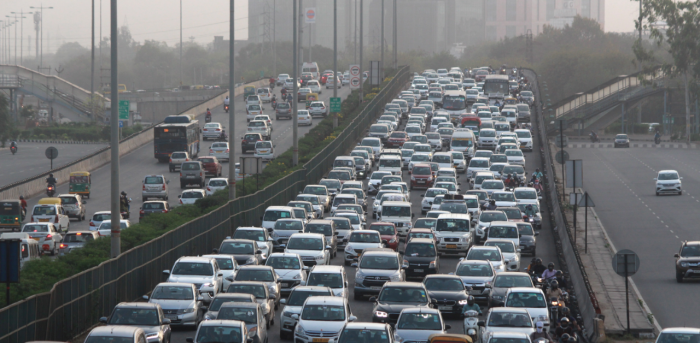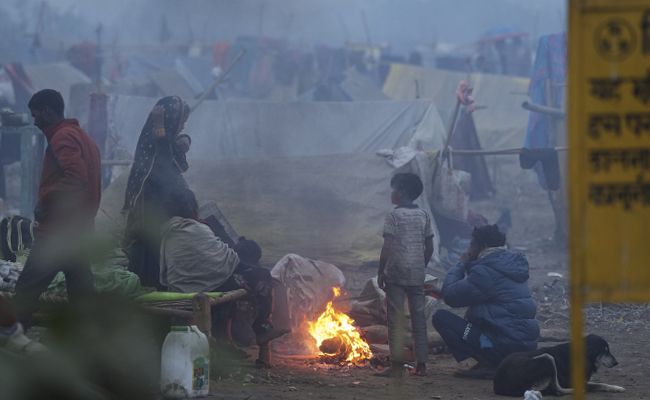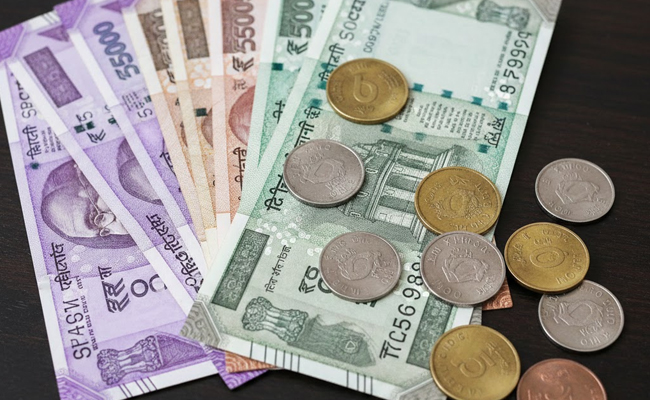New Delhi, Jul 30: Delhi has more than 36 lakh vehicles older than 20 years, the second highest in the country after Karnataka, which has over 39 lakh such vehicles, the Centre said on Friday.
Responding to a query in the Lok Sabha, Minister of State for Environment Ashwini Choubey said there are 2,14,25,295 vehicles older than 20 years in the country.
He said these figures exclude vehicles in Andhra Pradesh, Madhya Pradesh, Telangana and Lakshadweep as they are "not in centralised Vahan 4 portal".
While Karnataka has 39,48,120 vehicles older than 20 years, Delhi has 36,14,671, followed by Uttar Pradesh with 26,20.946 such vehicles, as per the data shared by the minister in a written response.
Kerala recorded 20.67 lakh 20-year-old vehicles, Tamil Nadu has 15.99 lakh such vehicles and Punjab 15.32 lakh vehicles, he said.
On being asked about pollution caused by these vehicles, Choubey said no assessment has been made regarding the pollution caused by these vehicles in the country.
The number of 20-year-old vehicles in Delhi assume significance as the Supreme Court had ruled in 2018 that any registered diesel vehicle more than 10 years old, and any petrol vehicle over 15 years old cannot operate in NCR. These rules have been laid down in various orders issued by the NGT (2015) and the Supreme Court (2018).
However, earlier this year, the Centre had proposed a new draft vehicle-scrapping policy, which will allow owners to use their old vehicles after a fitness test and on payment of a higher fee.
Let the Truth be known. If you read VB and like VB, please be a VB Supporter and Help us deliver the Truth to one and all.
Noida: India TV editor-in-chief Rajat Sharma has drawn sharp criticism on social media following remarks he made on air attributing Delhi’s air pollution partly to its geographical location and the Aravalli hill range.
Speaking during a recent episode of his prime-time show Aaj Ki Baat, Sharma said Delhi’s geography plays a major role in trapping polluted air.
“Geographical location is the main reason. Delhi is a big city and its shape is like a bowl, surrounded by the Aravalli hills on three sides. As a result, polluted air gets trapped and cannot disperse easily. Therefore, the problem of pollution in Delhi cannot be solved in one year or in any particular season,” he said.
His comments came amid a severe deterioration in air quality in the national capital. On Sunday morning, December 21, Delhi woke up to a thick blanket of toxic smog, sharply reducing visibility and causing widespread discomfort. The overall Air Quality Index (AQI) stood at 390 around 7 a.m., placing it in the ‘very poor’ category, according to data from the Central Pollution Control Board (CPCB).
Dense fog and smog also disrupted flight operations at Delhi’s Indira Gandhi International Airport (IGIA). As many as 110 flights were cancelled, while over 370 flights were delayed due to poor visibility. Of the cancelled services, 59 were arriving flights and 51 were departures. Flight-tracking website Flightradar24 showed that departing flights faced an average delay of around 26 minutes.
Netizens troll Sharma
One user wrote on X, “Rajat Sharma is saying due to the Aravalli hills, there is air pollution in Delhi. He is defending mining and destroying the Aravalli hills like this. How can these people call themselves journalists?”
Another user accused him of political hypocrisy, comparing his earlier criticism of the Delhi government with his current remarks, and wrote, “In 2023 he blamed Arvind Kejriwal for Delhi air pollution. In 2025, he is blaming the Aravalli hills because BJP is in power. Hypocrisy = 100%, Journalism = 00%.”
Others termed the comments an example of the “godi media” narrative, alleging that geography was being blamed instead of governance, industrial emissions, vehicular pollution, construction dust, and stubble burning. “When they fail to question power or policy, they conveniently shift the blame to nature,” another post read.
“Friends, what can one even say about today’s godi media? According to them, the reason for Delhi’s pollution is that the Aravalli hills surround the city from three sides, trapping polluted air inside. Seriously? So now Sudhir Chaudhary and Rajat Sharma want us to believe that nature itself is to blame? When they fail to question power or policy, they conveniently shift the blame to geography. Apparently, it’s not years of environmental destruction or administrative failure—it’s the Aravalli hills! Does this explanation make any sense at all?,” wrote another.
What is the Aravali issue?
The controversy arises over the Union government’s revised definition of what constitutes the Aravalli hills.
The decision has drawn protests involving environmental activists across Haryana, Rajasthan, and parts of the Delhi-NCR region, who have raised concerns that the new definition could weaken protection for one of the world’s oldest mountain ranges.
Under the revised definition, an “Aravalli hill” is described as any landform in designated Aravalli districts with an elevation of 100 metres or more above local relief, while an “Aravalli range” is defined as a cluster of two or more such hills within 500 metres of each other. Activists fear this could open the door for mining, construction, and commercial activities in previously protected areas.
Environmentalists argue that the Aravalli range serves as a natural barrier against desertification, dust storms, and pollution, and plays a vital role in maintaining ecological balance in the Delhi-NCR region.
They have demanded that the entire Aravalli range be declared a fully protected area with strict conservation measures.
Meanwhile, Union Environment Minister Bhupender Yadav has stated that the new definition, accepted by the Supreme Court based on a Centre-led panel’s recommendations, would not result in any relaxation of mining norms in the Aravalli region.
Rajat Sharma is saying due to Aravalli hills there is Air pollution in Delhi. He is defending mining & destroying Aravalli hills like this
— Veena Jain (@Vtxt21) December 21, 2025
How can these people call themselves Journalists even after doing such things 🤮
pic.twitter.com/osgDAYl6Nb
🚨 2023 : Rajat Sharma was blaming Arvind Kejriwal for delhi air pollution
— Amock_ (@Amockx2022) December 21, 2025
🚨 2025 : He is blaming Aravalli Hills for delhi air pollution because BJP is in govt
Hypocrisy = 100%, Journalism = 00% 🤣 pic.twitter.com/EHCrAmAfGY
Friends, what can one even say about today’s godi media? According to them, the reason for Delhi’s pollution is that the Aravalli hills surround the city from three sides, trapping polluted air inside. Seriously? So now Sudhir Chaudhary and Rajat Sharma want us to believe that…
— The indian guy (@Ab60307) December 20, 2025





